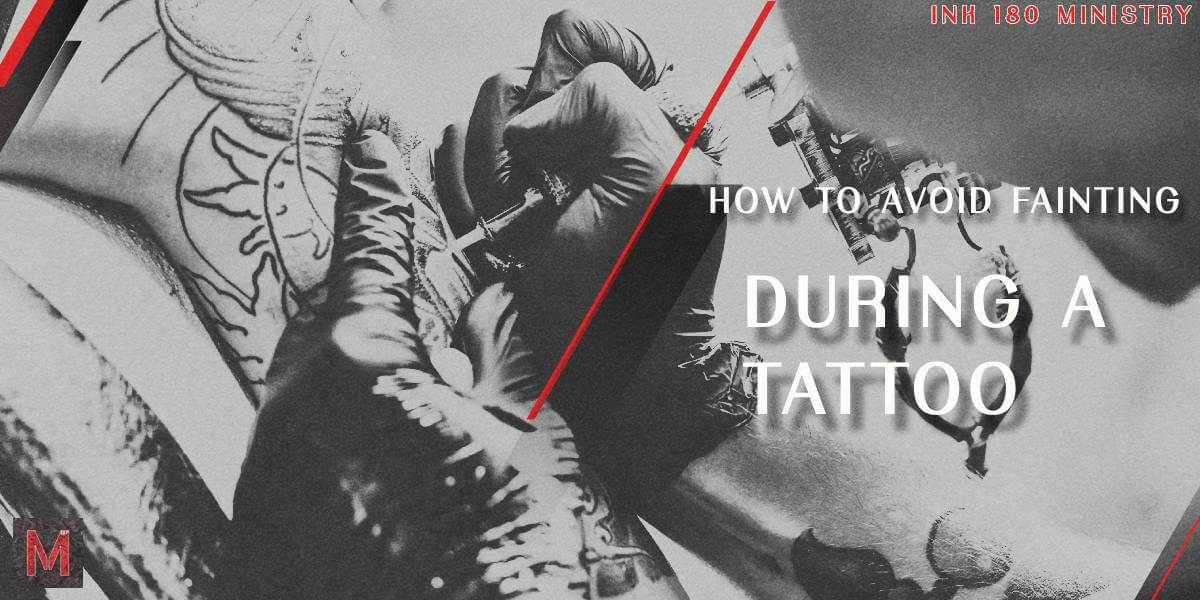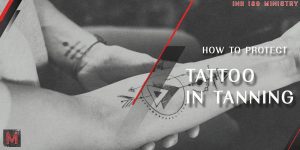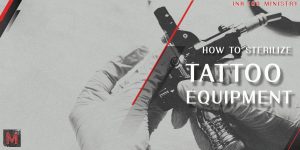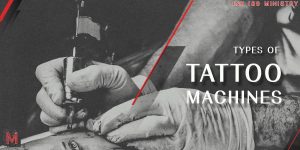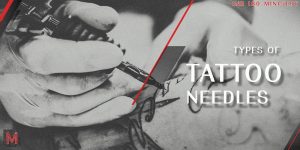Have you ever wondered how to avoid fainting during a tattoo session? It’s a question that often crosses the minds of those planning to get inked but who are a little afraid of pain and various specific procedures. Tattoos can be a thrilling and artistic way to express oneself, but for some, the process can be a nerve-wracking experience that leads to unexpected fainting spells. In this article, I’ll share with you why some people lose consciousness during tattoo sessions and, more importantly, how you can take steps to prevent it.
Causes of fainting during a tattoo session
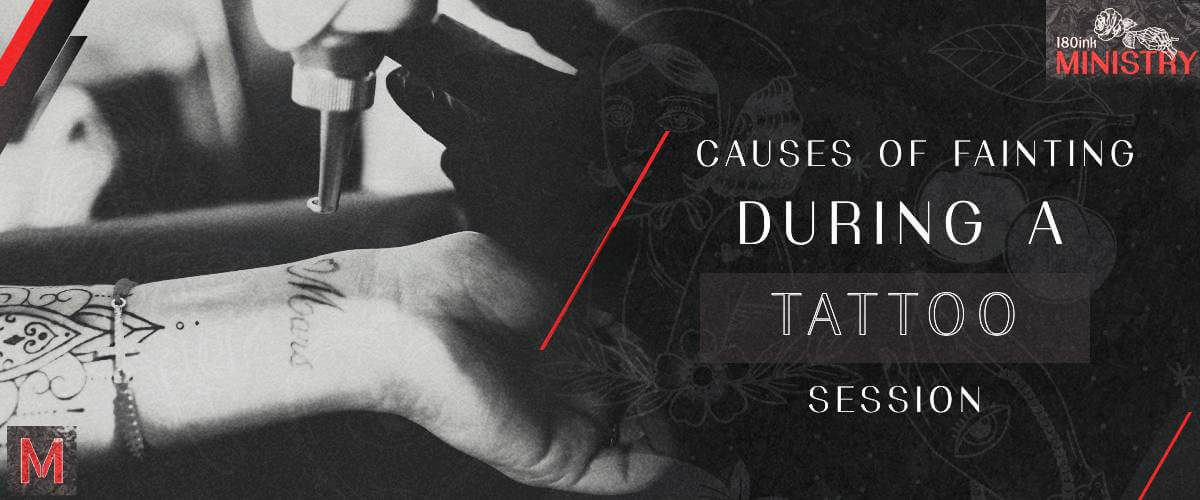
Passing out during a tattoo session can be a disconcerting experience, but it’s not uncommon. Here are the 3 main reasons for this:
- Anxiety and stress. The anticipation of pain and the permanence of the tattoo can trigger a stress response, leading to a drop in blood pressure and potentially causing fainting.
- Low blood sugar levels. Getting a good meal before coming to the tattoo artist is really important because it influences your blood sugar level. If the blood sugar level is low, there is an increased risk of fainting.
- Pain perception. Some individuals have a lower pain tolerance or may be more sensitive to the tattooing process. The perception of pain can trigger a fainting response in these cases.
Signs of fainting
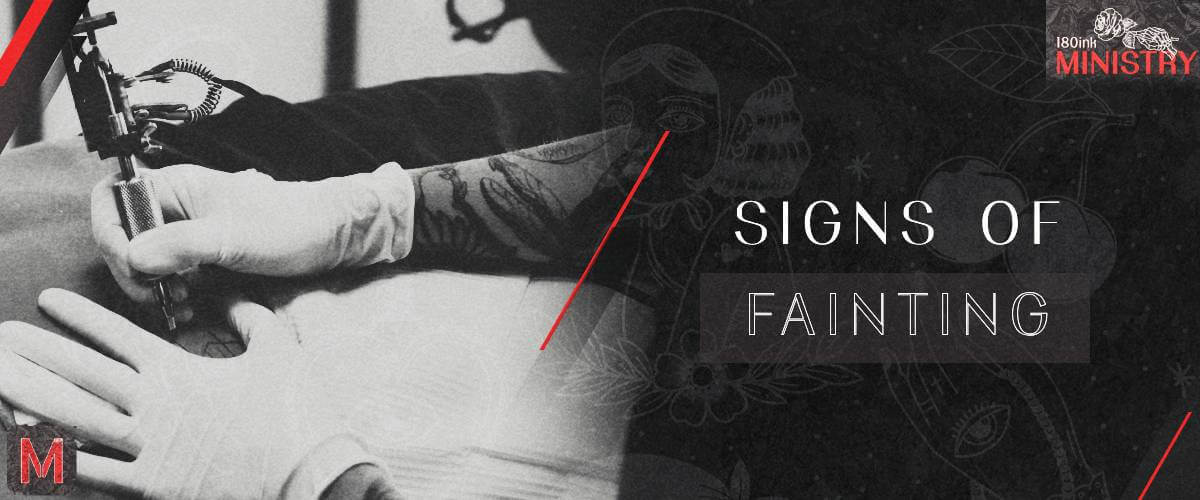
Recognizing the signs that indicate a person is on the verge of fainting is important for both the individual undergoing the tattoo and the tattoo artist. Awareness of these symptoms can help prevent an episode of passing out from tattoo injections. If you or someone around you experiences sudden dizziness after a tattoo injection, it’s critical to address it promptly.
Some common signs include:
- An uneasy stomach or feelings of nausea can accompany the sensation of impending fainting. It’s important to communicate any discomfort with your tattoo artist.
- If you feel cold, clammy, or excessively sweaty, it could be an indication that blood pressure is dropping, and fainting may be imminent.
- Blurred vision or tunnel vision can precede a fainting episode.
- A sudden paleness in the face is another observable sign that someone may faint.
- Feeling unusually weak or tired can be an early warning sign, and it’s critical to take it seriously.
Steps to avoid fainting
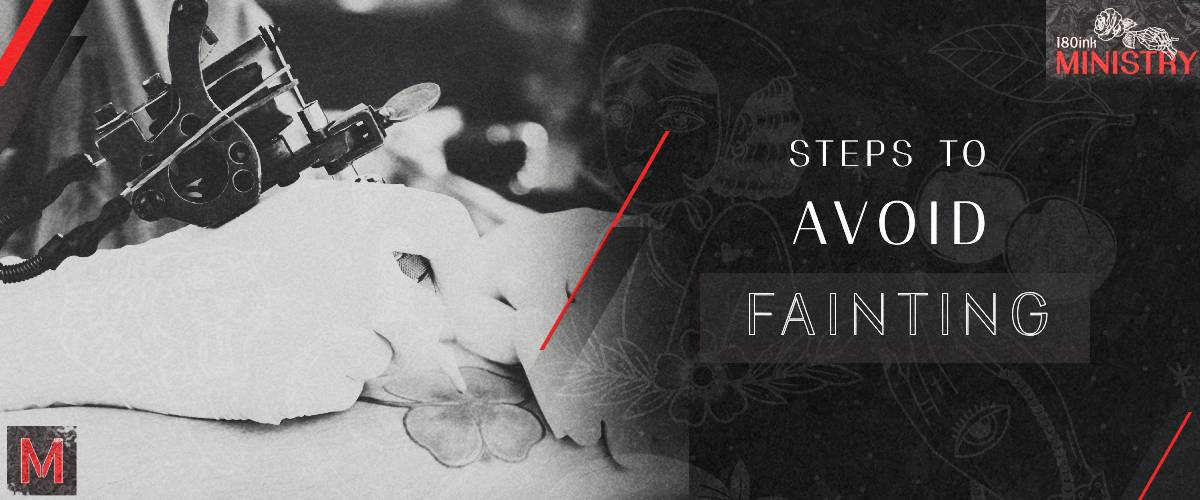
Fainting during a tattoo session is more common than you might think, but the good news is that there are practical steps you can take to prevent it.
Before the tattoo session
- I recommend you get a good night’s sleep before your appointment and have a nutritious meal. Low blood sugar levels can contribute to fainting, so having a balanced meal is critical.
- Dehydration can increase the risk of fainting. Drink plenty of water in the hours leading up to your tattoo session.
- Wear comfortable clothing that allows easy access to the tattoo area. This minimizes discomfort and anxiety during the session.
- Having a friend accompany you can provide emotional support and distraction during the process, reducing anxiety.
During the tattoo session
- If you start feeling anxious, practice deep breathing exercises. Inhale deeply, hold for a few seconds and exhale slowly through your mouth.
- Keep an open line of communication with your tattoo artist. Don’t hesitate to let them know if you experience any discomfort or unusual sensations.
- If you’re feeling overwhelmed, request short breaks during the tattoo session. This can give you a chance to relax and regain your composure.
- Some people unconsciously hold their breath during painful moments. This can lead to a drop in blood oxygen levels and increase the risk of fainting.
After the tattoo session:
- Continue to drink water and have a meal after the tattoo session. This helps in replenishing energy and maintaining stable blood sugar levels.
- Listen carefully to the instructions that your tattoo artist gives you. It’s really important to take proper care of your new tattoo.
To sum up, if you keep up with some important precautions, your tattoo session will be totally successful. Keep in mind that everyone’s tolerance levels are different, so it’s important to focus on your well-being and keep an open line of communication with your tattoo artist during the entire process.

